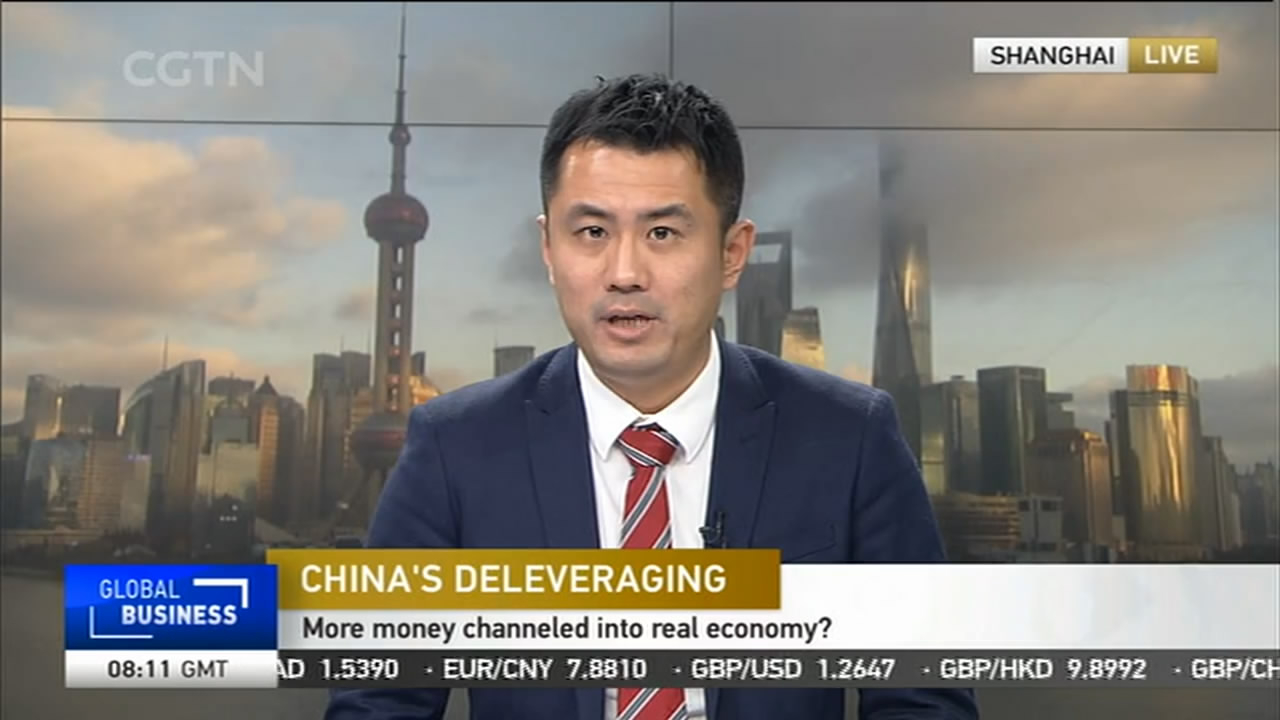
Economy
21:35, 20-Dec-2018
Deleveraging will remain anchor of economic policies next year: expert
Updated
20:49, 23-Dec-2018
By CGTN's Global Business
02:31

Private sectors' credit condition is getting better and deleveraging will still be the dominant economic policy next year, according to Jimmy Zhu, chief strategist in Fullerton Markets.
As China continues to advance financial reforms and opening-up to resolve systemic risks, the country has implemented lots of game plans for the economic challenges it faces at both home and abroad. According to the annual Financial Stability Report from the People's Bank of China (PBOC), China's financial system is showing resilience and stability amid mounting external uncertainties.
As China's economic and financial risks generally remained under control, people are questioning whether more money has been channeled into the brick-and-mortar businesses.
Zhu thinks that given the current economic growth momentum is still soft, there may not be "a perfect gage" to say that the money has been flying to the private sectors. A few signs are showing that the private sectors' credit condition is much better than a few months ago, according to Zhu, who cited that a few policies have eased the credit condition for private sectors.
"First, we see the aggregate financing data in November has reached the highest level in the past few months and it shows that the money could fly to the private sectors. Secondly, we can see the Caixin Manufacturing Purchasing Managers' Index (PMI) which is more relevant to the small private companies reached 50.2 [in November], which is 0.2 higher than the official PMI," said Zhu.

Jimmy Zhu, chief strategist in Fullerton Markets talks in an interview with Global Business. /CGTN Photo
Jimmy Zhu, chief strategist in Fullerton Markets talks in an interview with Global Business. /CGTN Photo
The growth imperative and risk prevention were pretty balanced this year, added Zhu, predicting that although the government focuses on turning to growth in 2019, the process of deleveraging is going to continue.
"I do see there is a focus on turning to growth in 2019, because the economy is slowing down. But I don't think that 2014 or 2015's those kinds of broad-based easing will fly into the economy as soon as in next year, because the deleveraging is still one of the anchors of the economic policies," said Zhu.
Moreover, the expert believes that as the Federal Reserve might slow down the pace of the monetary tightening, it actually gives the PBOC more room to ease monetary policy.
(CGTN'S Yu Bokun also contributed to the story.)

SITEMAP
Copyright © 2018 CGTN. Beijing ICP prepared NO.16065310-3
Copyright © 2018 CGTN. Beijing ICP prepared NO.16065310-3